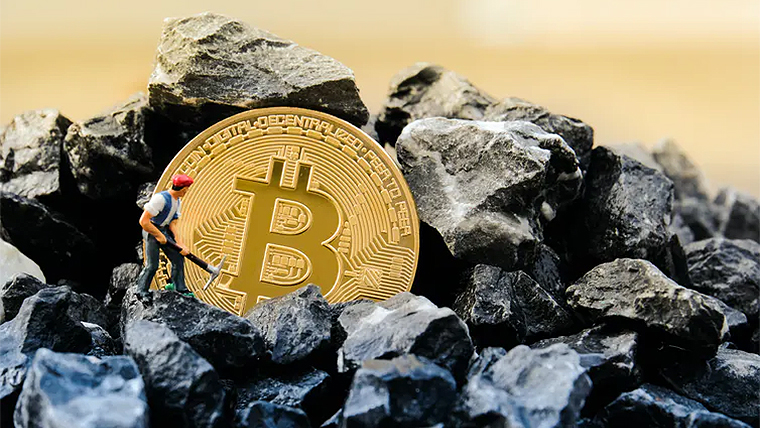But the infrastructure behind internet-based cryptocurrencies such as bitcoin, dogecoin and ethereum is more like a rusty travelling circus.
Like a never-ending game of Hungry Hippos, each player hammers their mining machines 24/7 to try and scoop up as many bitcoins as possible.
Bitcoin’s booming popularity has caused its electricity demand to swell.
To maximise profits, mining machines are often crammed into shipping containers, with operators ready to up sticks at a moment’s notice to find the cheapest sources of energy.
Even so, rocketing demand for bitcoin elsewhere means the network’s energy use in China is predicted to peak by 2024 at around 300 TWh.
Expulsions from the province could force some highly invested bitcoiners underground, while forcing others to find new places to park up in neighbouring countries which don’t have China’s seasonal glut of renewable energy.
To prevent an influx of Chinese miners chasing cheaper electricity, Iran’s President recently clamped down on new oil-fuelled mining, which authorities blame for increasing urban smog.
In May 2021, officers from West Midlands Police in the UK, believing they were raiding an illegal cannabis farm in Sandwell, instead discovered around 100 bitcoin mining machines running off an improvised connection to the electricity supply.
The price of specialist chips used by the likes of Intel and Apple have increased by around 70% so far in 2021, with knock-on effects for UK consumers.
According to the insurer, Hiscox, around 4,500 organisations fell victim to cyber attacks every day in the UK in 2018.
Some argue that to slow the increase in ransomware attacks, authorities need to crack down on cryptocurrency exchanges that enable bitcoin ransoms to be paid.
Research shows that new miners joining the competition in North America have encouraged miners where there are no renewables to use more machines and work harder, increasing the network’s overall carbon footprint.
Likewise, when UK-based investors are allowed to speculate on bitcoin, they encourage an environmentally disastrous global industry that has so far failed to benefit anyone except criminals and some early speculators.
Cracking down on crypto exchanges or banning the import and use of mining equipment could be a relatively easy win for the UK as it prepares to host the 2021 UN climate summit.
The writing is on the wall, Bitcoin will get banned in the not to distant future and will either just fizzle or remain a currency for drug dealers.
if you don’t follow the rules over there you end up dead, they don’t pussy foot around over there.
So far Ethereum 2.0 is set to slash its energy consumption by 99.95% within months, as they transition to a new infrastructure model.
Since Bitcoins main business model sits around the concept of the mining of Bitcoin, as a cheap way for them to decentralize their processing power for computational transactions to maintain the ledger of transactions upon which Bitcoin is based.
